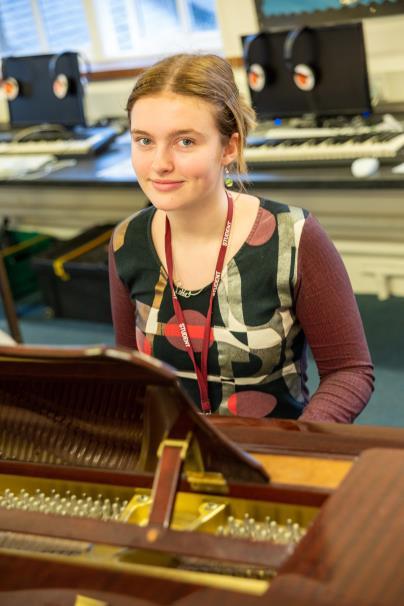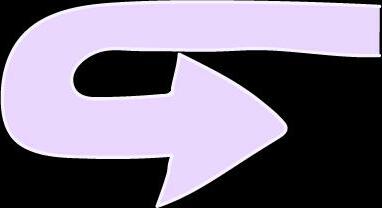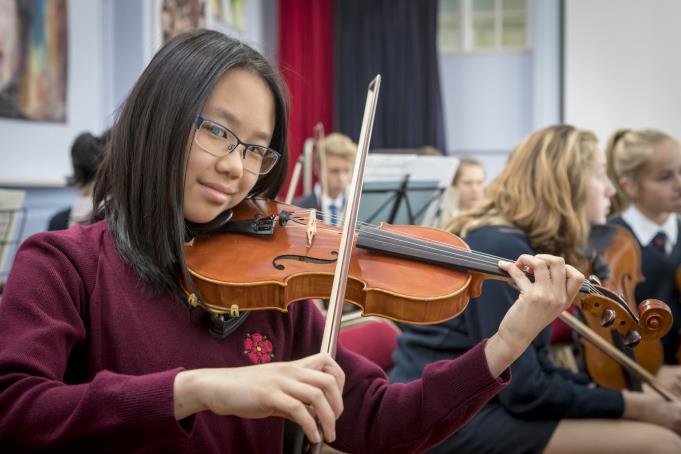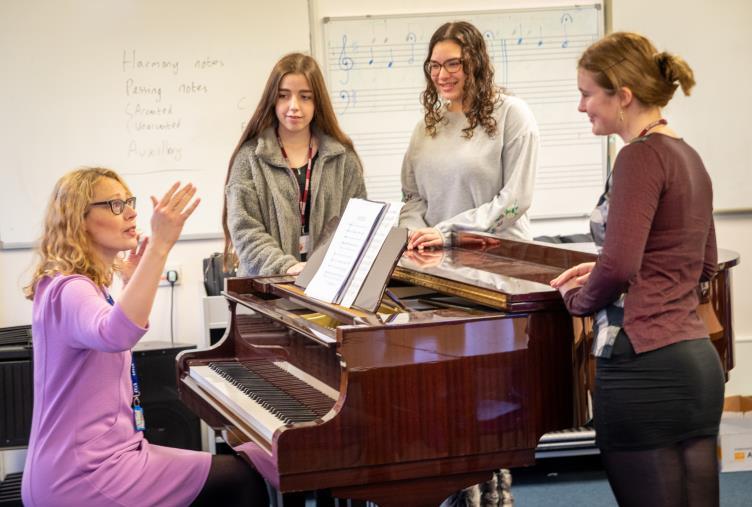
4 minute read
Music
FREE OPTION CHOICE PERFORMING ARTS
GCSE MUSIC
The Music GCSE course is designed to increase your skill, knowledge and enjoyment of music in all its forms. The twoyear course is divided into 3 units, which are taught simultaneously.
UNIT 1 - Performing 30% of the qualification Performing forms a major part of the course and as well as being assessed in its own right, it underpins many of the skills covered in Units 2 and 3. You will record a solo or ensemble piece (in any style/genre) every half term and select your strongest from each category (lasting a combined minimum of 4 min.) to be sent off for assessment. To gain the highest marks in this unit you need to be able to perform music equivalent to at least Grade 4-5 standard (though no formal qualifications are necessary to be accepted on the course). It is also an option to study this unit through Music Technology (i.e. creating a studio recording) or by directing/rehearsing an ensemble or choir.
UNIT 2 - Composing 30% of the qualification You are to compose TWO pieces of music over the two years, lasting a minimum of 3 MINUTES combined duration. The first composing brief will be set by the exam board and the second is a free choice made by the student. Compositions can be written in a variety of styles and incorporate Music Technology if the student wishes. They may be completed in a traditional score format or submitted as a recording with a written commentary. UNIT 3 - Appraising 40% of the qualification In this unit students develop their listening and appraising skills through the study of music across
W H Y M U S I C ?
Music is an incredibly diverse course, encompassing a variety of practical and academic approaches to its study, its varied nature enables students to develop highly-desirable skills in areas such as selfmanagement, teamwork, problem-solving, and communication; all of which makes them an attractive prospective for potential employers. Music opens doors to a wide range of careers both within and outside the arts and the social aspect of the course allows you to build on these social skills alongside the technical aspects. From critical thinking to administration, those who study Music gain a wide range of skills - the skills learnt can be applied to many different professions including performing, teaching, composing, working with film, TV or radio.

a variety of styles and genres. The content of the work is grouped into FOUR Areas of Study; each one comprising of TWO set works. The Areas of Study are: AOS 1: Instrumental Music 1700 - 1820 AOS 2: Vocal Music AOS 3: Music for Stage and Screen AOS 4: Fusions The unit is assessed through an exam at the end of Year 11 which is in two sections: Section A - Areas of study: dictation, and unfamiliar pieces Section B - Extended response comparison between a set work and one unfamiliar piece.

Although prior knowledge of musical theory is highly advisable, we will spend the first term recapping on all the basics of musical theory and composing skills before starting the assessed work. Compositions can also be written in non-standard notations - guitar tab, drum notation, or created using computer programmes such as Sibelius and Garageband. Experiencing live music is an essential part of the course so there will be opportunities to take part in trips to concerts and shows to venues such as the Bridgewater Hall and London’s West End. Students taking GCSE Music are expected to join at least one of the Senior Ensembles at LGGS. The Joint Schools Musical with LRGS is open to students in Years 10 and above and the following is a list of some of the musical opportunities open to students in Years 10 and above: Senior Choir, Joint Schools’ Orchestra, Concert Band, Jazz Band, String Group and Vocal Group.
The Music Department also offers:
• Student led society, trips and visits, online resources • A wealth of music groups including Orchestra, Choirs, Jazz
Band, Concert Band and the
Joint Schools’
Musical • Music Council • Regular visits to concerts • London West End Trip • Choir Exchange to
Wernigerode, Germany • Music Tour to Europe • Annual Music Festival • Annual Performing
Arts Festival



CONTACT teacher Mr Swannell
EXAM BOARD EDEXCEL
ASSESSMENT 60% Coursework 40% Written Exam
CAREERS Performing: In addition to solo performance careers, there are performance opportunities in chamber music, Music Journalist Folk Rock and Pop Musician Freelance Concert and Studio Opportunities. Composing Teaching Music Arts & Administration Music Technology: i.e. Sound Engineering
Music Production
Sound Design Music Therapy Music Promotion Music Agent










